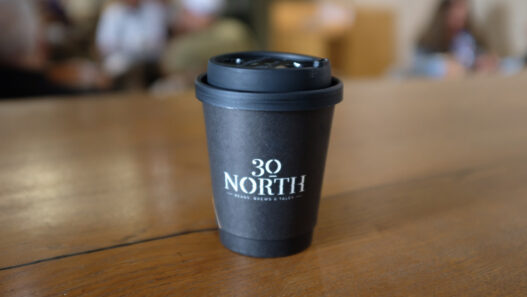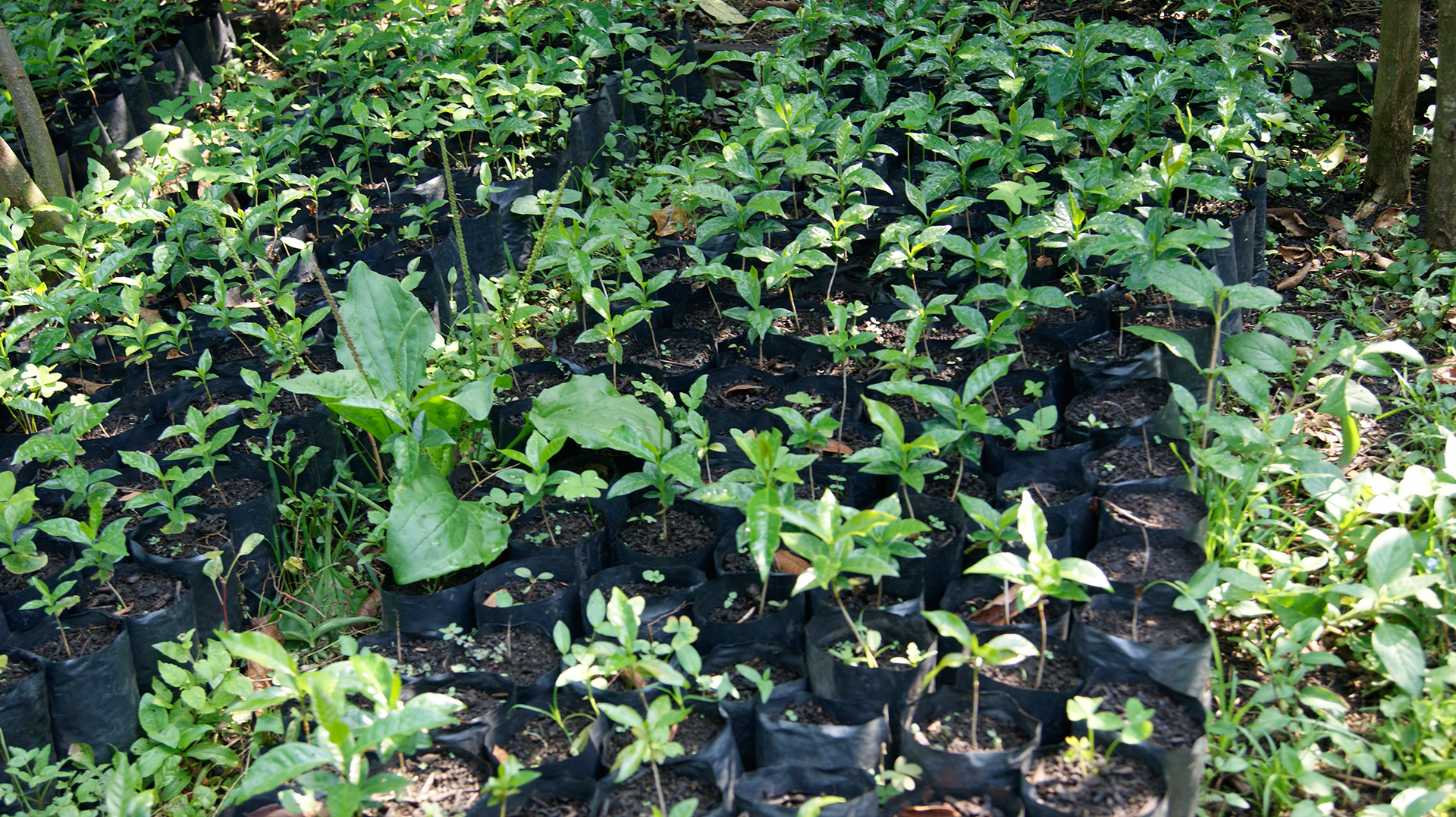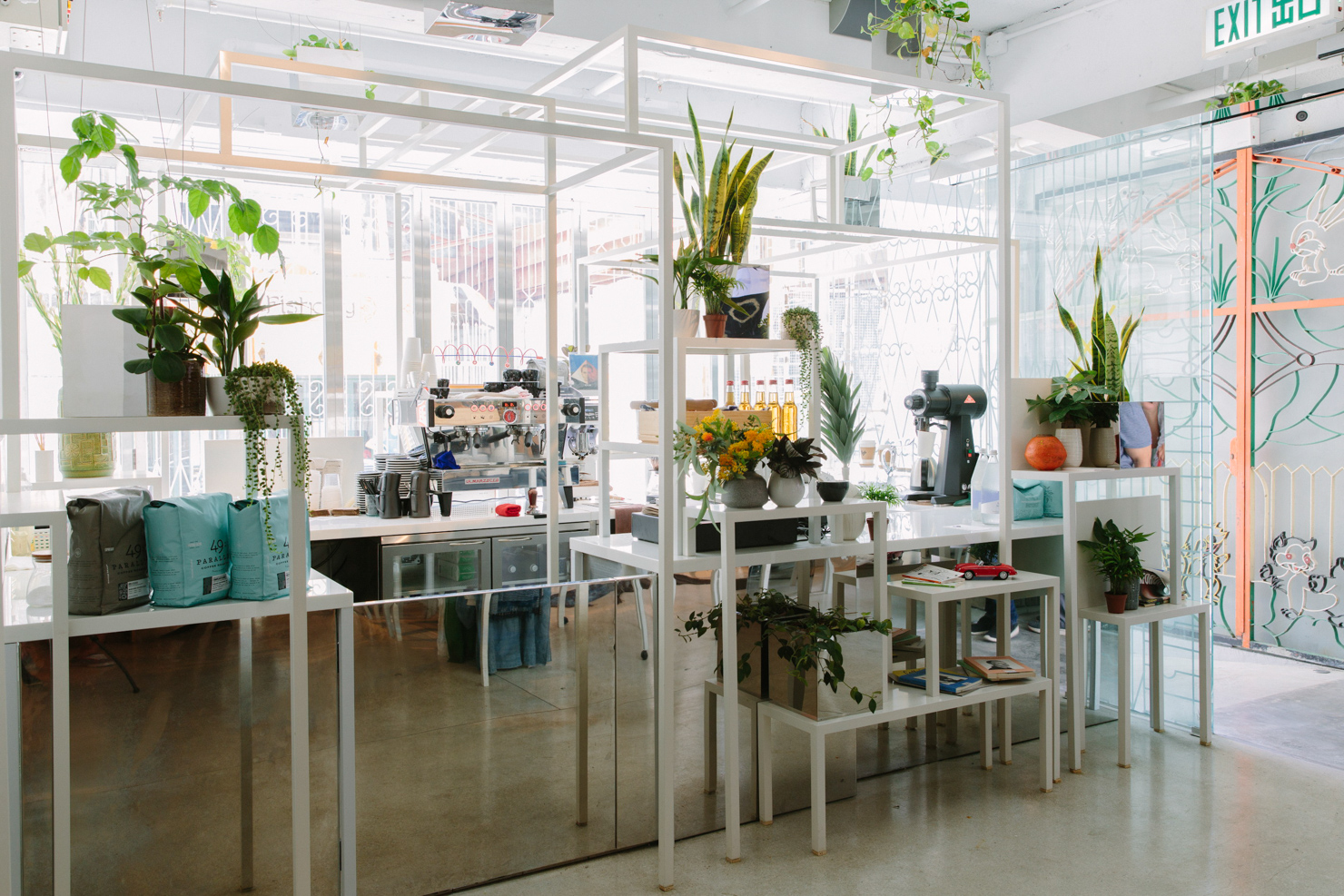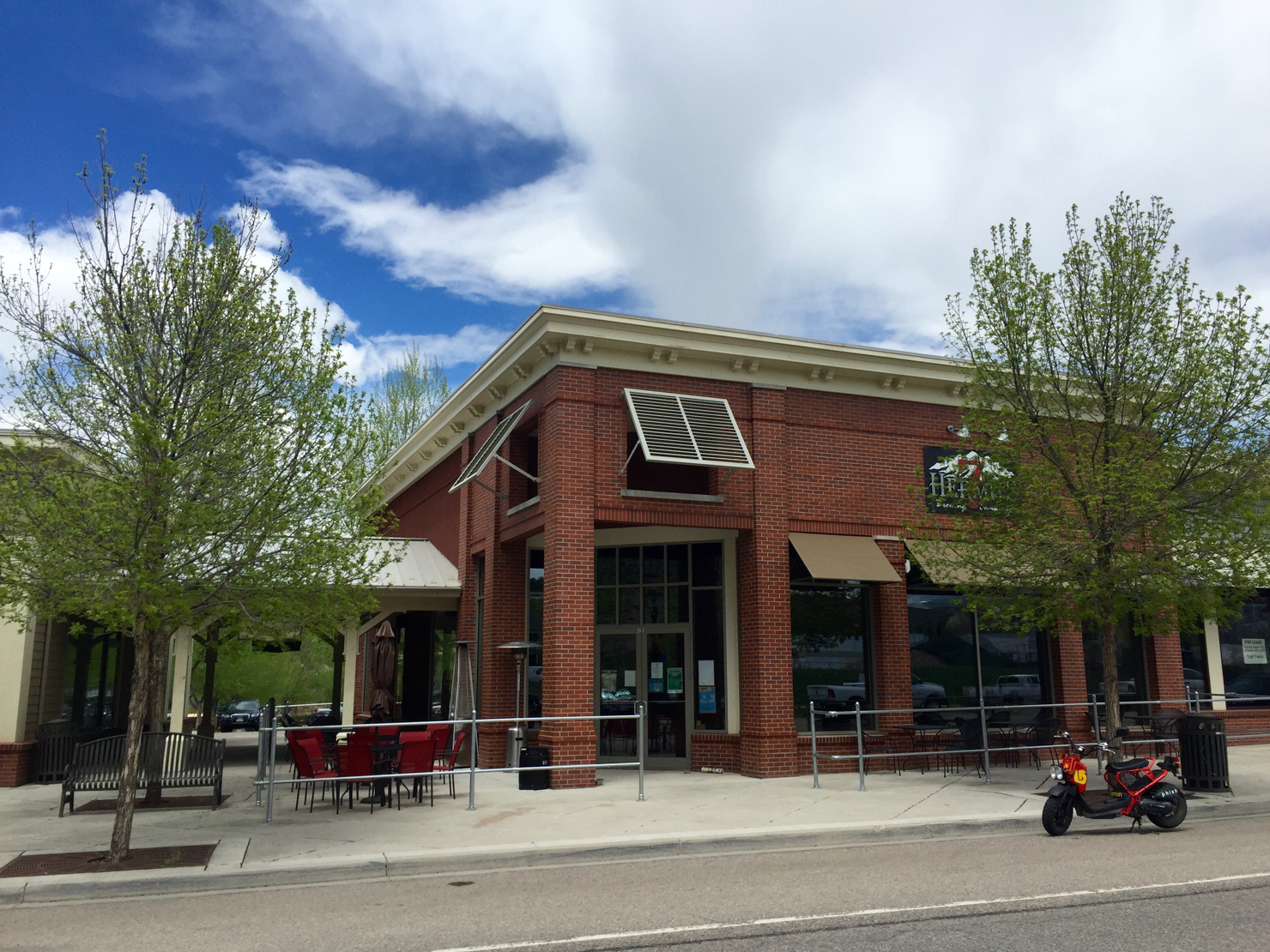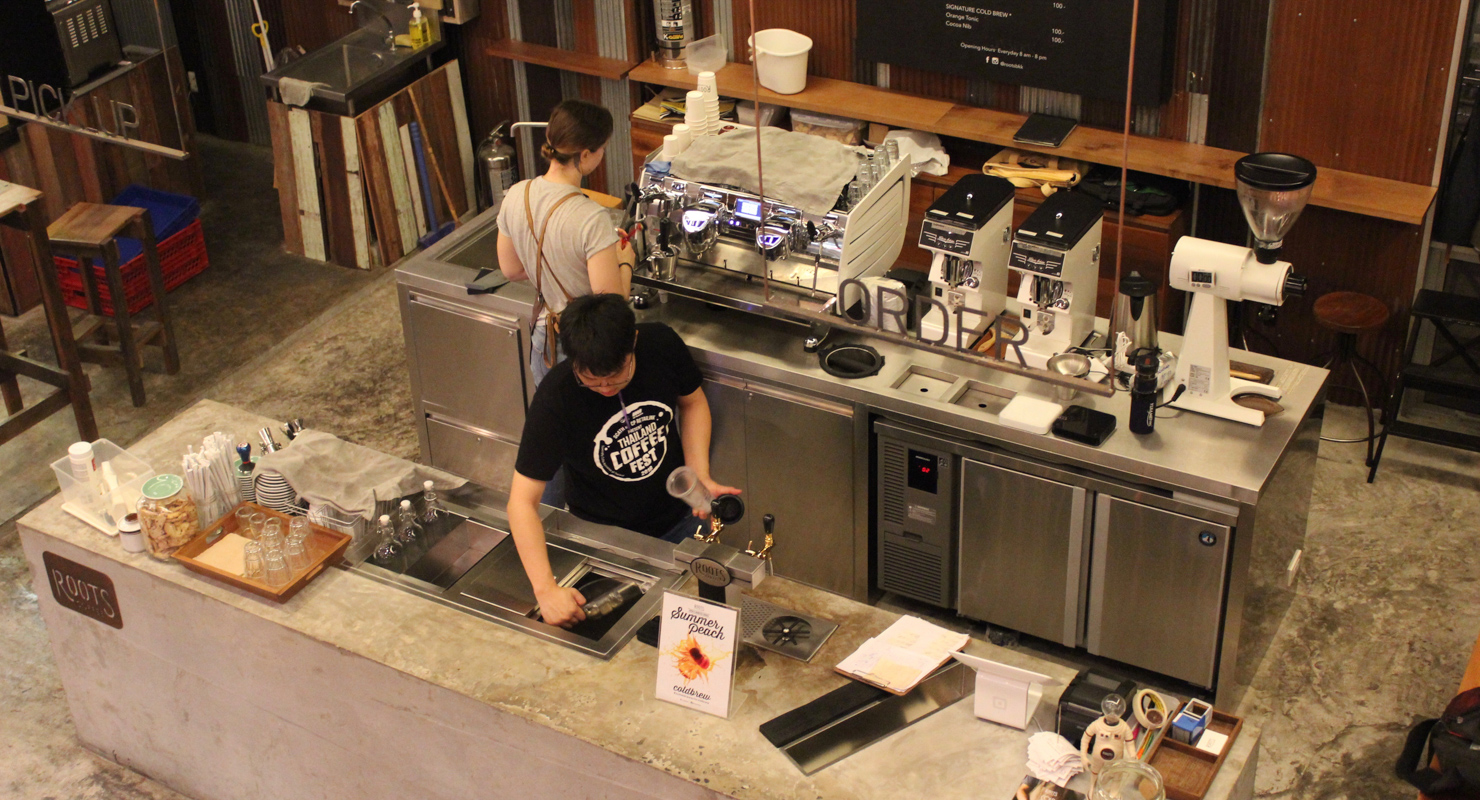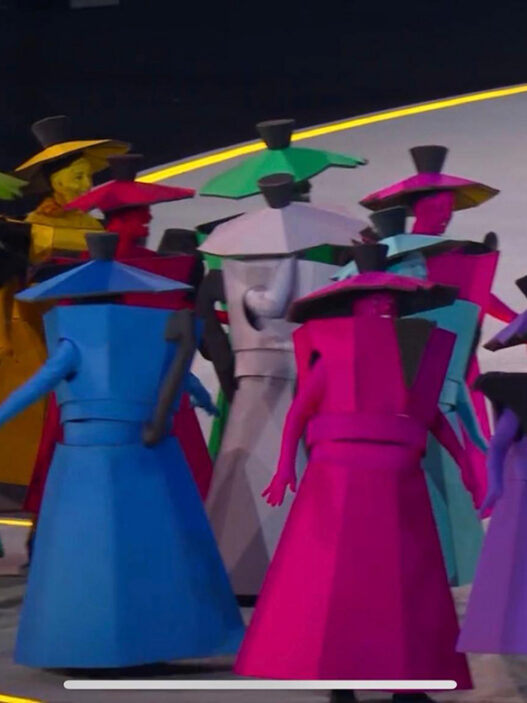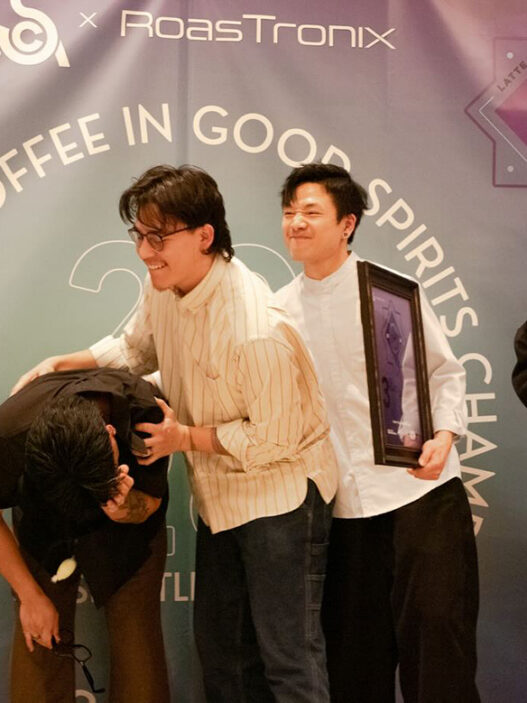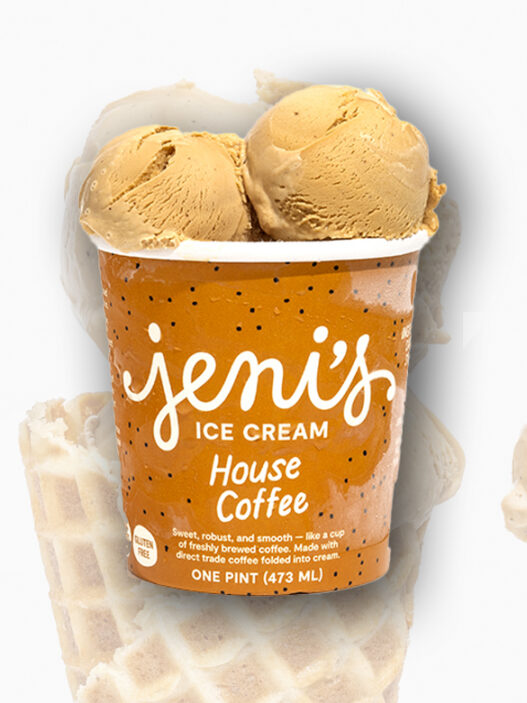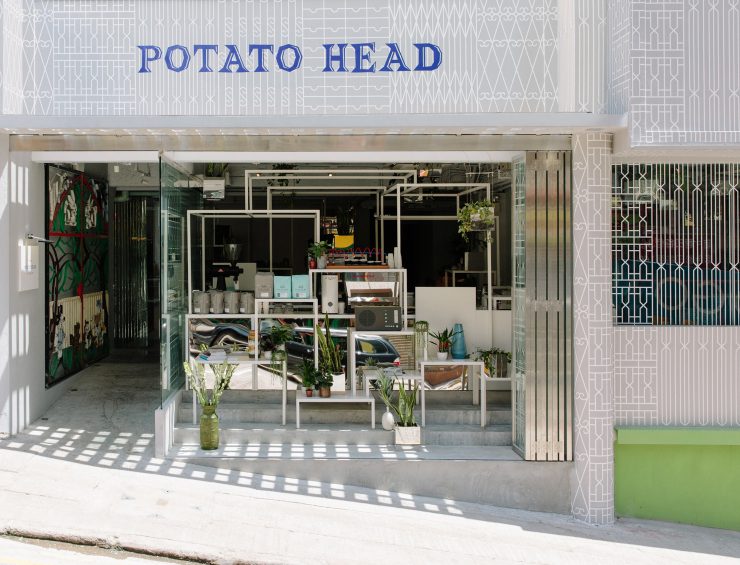
In the ribcage-like network of streets that make up Hong Kong’s evolving Sai Ying Pun district, a quiet yet devastatingly stylish new coffee spot can be found in a space that once housed a kindergarten. Hints of its former incarnation can be seen in the wrought-iron depictions of Disney characters at the entrance, but otherwise, it’s a new start—the signature geometric lines of Japanese architect Sou Fujimoto, who was tasked with the interior design, and a set of dramatic glass-and-steel concertina windows immediately tells you this particular venue is not quite like its neighbors.
I Love You So Coffee (ILYSC) is less a stand-alone cafe and more a coffee concession that takes up the front of house at the 8,000-square-foot Potato Head, the zeitgeist-nailing Balinese lifestyle brand that opened its first Hong Kong venue earlier this summer. Set among working-class barbershops, tiny estate agents, and local diners, ILYSC has just recently started catching the attention of bleary-eyed commuters and curious denizens, who can now either grab a brew starting from 7:30 in the morning, or take a cheeky midafternoon coffee break in the eccentric, brightly colored lounge/bar beneath its futuristic canopy of hanging greenery.
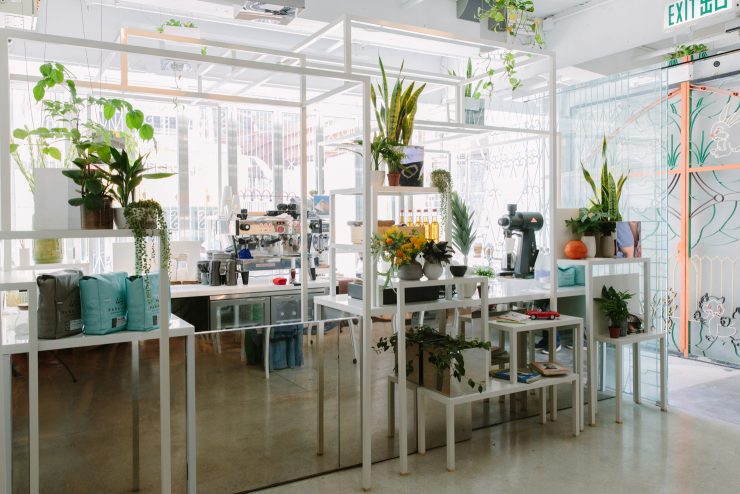
Just as the Potato Head concept is new to Hong Kong, ILYSC’s pedigree is perhaps better known among Tokyoites, who had the chance to experience its first incarnation as a tiny coffee pop-up that operated during British design collective Tomato‘s 25th Anniversary Exhibition “O,” hosted in the Japanese capital earlier this spring. That particular project was conceived by Trey Shores, the global development director for PTT Family, the company behind the Potato Head brand. Something of a brew nerd himself, Shores’s coffee journey has included stints under the tutelage of veterans and legends such as George Howell and Scott Rao, the latter playing a key part in the design of I Love You So Coffee’s program along with Fuglen Coffee‘s head roaster Kenji Kojima.
For the Hong Kong opening, they tapped the expertise of Vassily Lissouba, an international coffee trainer and barista who cut his teeth at Anthony Benda’s legendary Cafe Myriade in Montreal, Canada, working alongside Rao. It should come as no surprise then that the brew bar showcases beans from Vancouver’s 49th Parallel Roasters (a longtime Myriade co-conspirator), five varieties of which I was lucky enough to try over the course of one stormy afternoon, along with fresh croissants from Bread Elements (one of Hong Kong’s best purveyors of quality carbs). The bar will more likely host two to three seasonal offerings that will rotate every two to eight weeks.
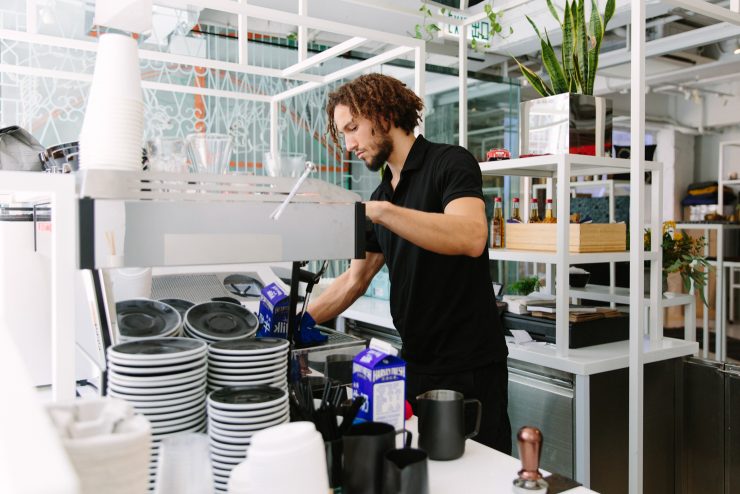
There was an Ethiopia Deri, a fabulously fresh and zingy coffee that 49th Parallel describes as being full of Meyer lemon and yellow-plum flavor; I added “a slight touch of jasmine tea” and “juiciness that keeps going” to my own notes. Another Ethiopia coffee, the Bokasso (like the Deri, also from the Sidamo region), is also a fresh crop release, which is apparent the moment this silky coffee touches down on your palate: a light, cucumber freshness makes it incredibly easy to drink, and I thought it also showcased a slight shiso-like pizzazz. We also sampled 49th Parallel’s Colombia Buena Vista (“smells like gummy bears!” tweeted the roaster back in June), Guatemala Poaquil, and Guatemala San Juan. The only espresso we tried was an Ethiopia Biftu Gudina (aka “Epic Espresso”), brewed to precision using a Decent Tamper and a two-group La Marzocco Linea PB espresso machine with built-in scales in the drip trays. Everything else? Surprisingly, batch brewed on a FETCO.
The thing about batch brew, Lissouba admits, is that it’s a method with an unfortunate reputation, something he’s adamant should change. “Unless you’re lucky, you’ll end up being served coffee that is likely to have been brewed more than an hour and a half ago,” he says of cafes that give batch brew a bad name. “By then, it will have developed sour, astringent flavors, and lose most, if not all of its vibrancy. It’s no wonder people go for the freshness of a pour-over, if given the choice. But if done right, some of the best coffee of my life came out of batch brew,” he says with a shrug. “The quality of the extraction is great.”
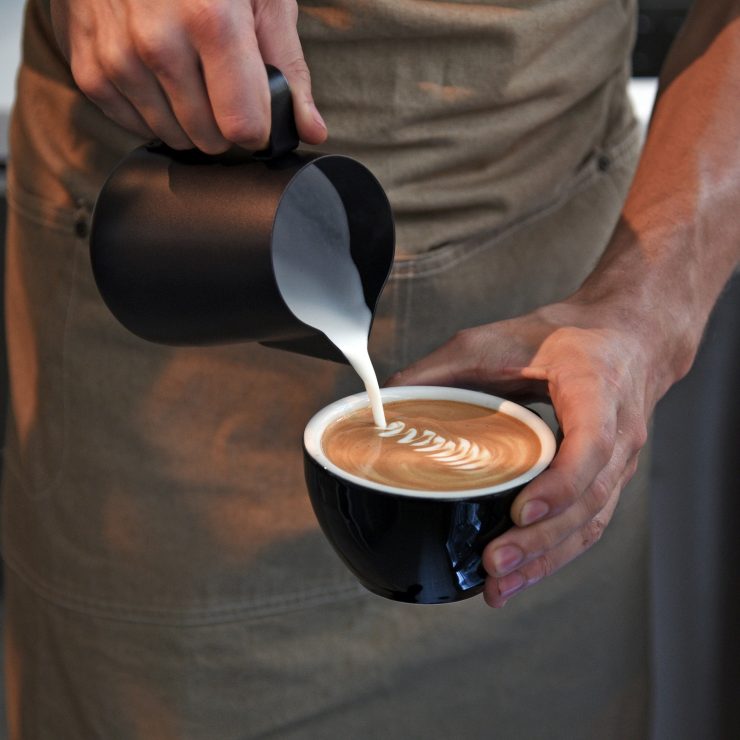
Giving it a go won’t break your bank, in any case. Currently, batch brews are priced at HK$30 (US $4) a cup, whereas the pour-overs are more in line with typical Hong Kong prices at HK$50 ($6.50) a pop—a system that Lissouba hopes will encourage more customers to try it out. “Two of my favorite products are coffee and pastries,” he explains. “Coffee is complex, aromatic, and unique. Pastries require a high level of cooking and preparation. When you have both, you can have a highly enjoyable gastronomic experience without paying for a fancy restaurant.”
With I Love You So’s combination of a super-stylish environment, killer beans, and consistent brews, we can’t imagine declaring anything less than love for this little neighborhood coffee bar.
Charmaine Mok is the digital editor-in-Chief at Hong Kong Tatler. Read more Charmaine Mok on Sprudge.







